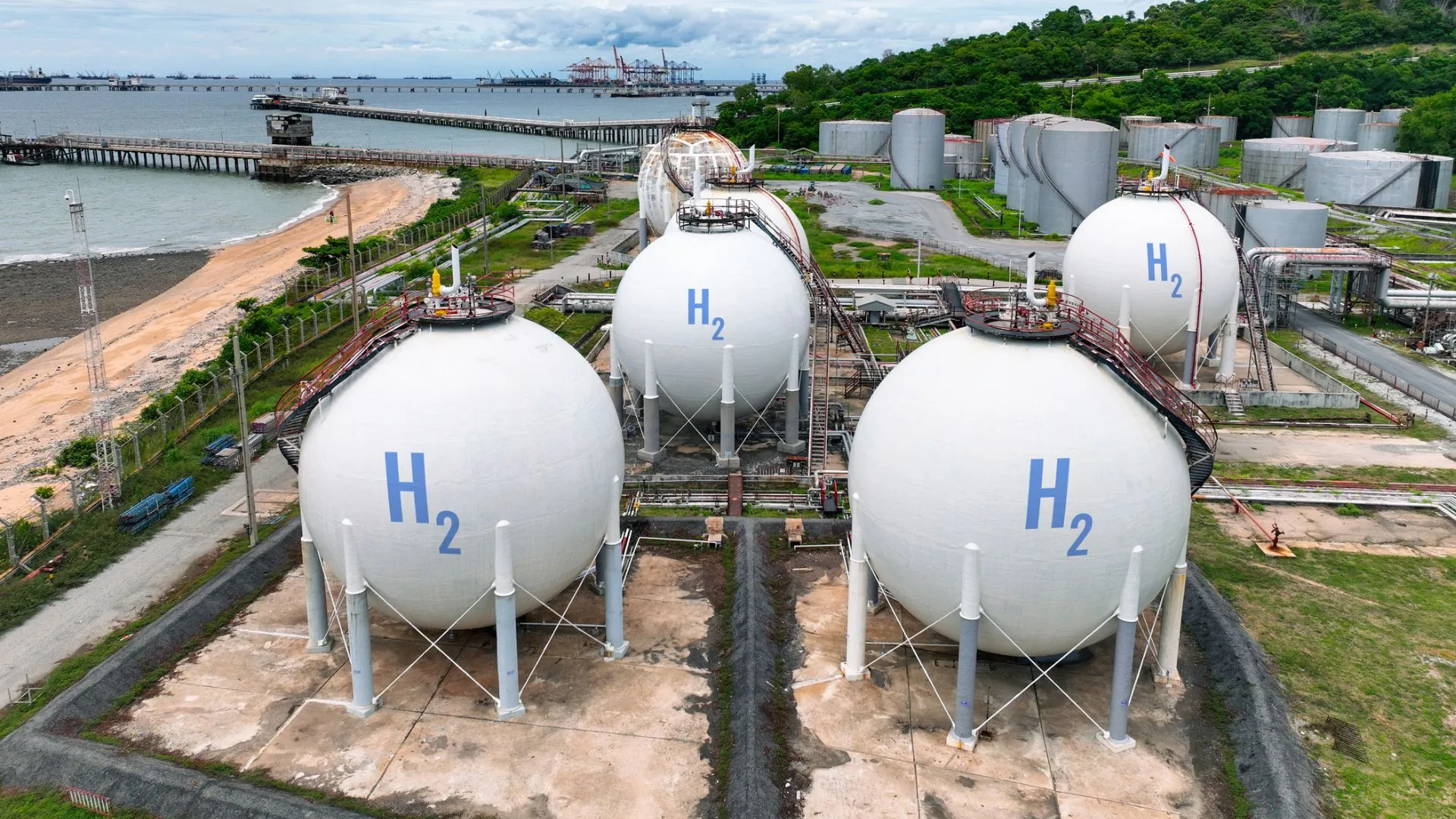Copyright Interesting Engineering

A new process that could benefit the global hydrogen economy has been unveiled by the Ulsan National Institute of Science and Technology (UNIST) in South Korea. The research team has developed a novel process that extracts 100 percent pure hydrogen from ammonia at low temperatures. This was achieved using a ball milling process to complete ammonia decomposition and hydrogen release at a mere 122 degrees Fahrenheit (50°C). The process contrasts sharply with conventional methods that usually operate at 752 degrees Fahrenheit (400°C) to 1112°F (600°C), and require costly purification steps. “This development offers a solution to the longstanding challenge of H₂ separation and purification in ammonia-based H₂ economy,” said Professor Jong-Beom Baek in the School of Energy and Chemical Engineering at UNIST. Hydrogen from ammonia Ammonia is an appealing, clean fuel carrier for the hydrogen economy due to various reasons. For instance, it has a high hydrogen content and benefits from a well-established global infrastructure for its storage and transport. However, the standard process of ammonia cracking to release this stored hydrogen is energy-intensive, requiring high operating temperatures. Furthermore, this high-temperature decomposition often co-produces other elements like nitrogen. The production of nitrogen requires additional, energy-consuming purification steps to yield the high-purity hydrogen required for fuel cells. Hence, the more the steps, the more energy consumption and production cost. In this new development, the team has solved the long-standing challenge of hydrogen separation and purification from ammonia. The innovative technique centers on a mechanochemical process carried out in a ball mill, which is a sealed container filled with ceramic or steel beads. The ammonia gas and finely powdered silicon are introduced into the mill. The container is vigorously shaken, and the resulting mechanical impact and friction activate the silicon powder. The activated silicon rapidly decomposes the ammonia, releasing hydrogen gas. A key feature is the in-situ removal of the nitrogen (N2) byproduct. The N2 immediately reacts with the silicon to form solid silicon nitride, which stays within the system instead of mixing with the H2. This self-purifying mechanism is essential to producing high-purity H2 without further separation steps. The results showcased a hydrogen generation rate of 102.5 mmol per hour, with an impeccable 100 percent purity. Silicon from discarded solar panels Apart from efficiency, the technology has other remarkable sustainability credentials. The process was shown to perform equally well when utilizing silicon recovered from end-of-life solar panels, rather than commercial silicon powder. It creates a key opportunity to address the massive environmental challenge posed by photovoltaic waste, which is predicted to top 80 million tons by 2050. The benefits extend further with the production of silicon nitride, a valuable byproduct within secondary batteries. When used in lithium-ion batteries, it demonstrated excellent performance, maintaining over 80 percent capacity after 1,000 cycles. “Lithium-ion batteries incorporating the synthesized silicon nitride achieved a capacity of 391.5 mAh/g, maintaining more than 80 percent of their initial capacity after 1,000 charge-discharge cycles with a Coulombic efficiency of 99.9 percent,” the researchers explained in the press release. This new development could help advance clean energy, offering a sustainable, cost-effective, and highly efficient solution for hydrogen production. The findings were published in the Journal of the American Chemical Society.



